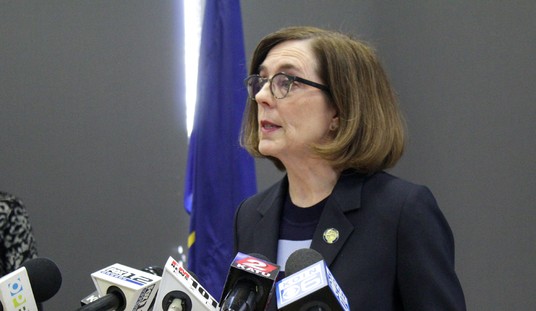Is the answer to bridging American energy policy from a petroleum economy to a renewables future under our very noses — or more accurately, under our feet? The Obama administration wants to impose a punishing cap-and-trade system onto the US to restrict carbon-dioxide emissions, but a plentiful energy source with at least decades of supply and inexpensive price could both lower emissions and reduce dependence on foreign oil. The natural-gas industry wants people to take notice of an option that could allow for an inexpensive transition and massive job creation:
An unlikely source of energy has emerged to meet international demands that the United States do more to fight global warming: It’s cleaner than coal, cheaper than oil and a 90-year supply is under our feet.
It’s natural gas, the same fossil fuel that was in such short supply a decade ago that it was deemed unreliable. It’s now being uncovered at such a rapid pace that its price is near a seven-year low. Long used to heat half the nation’s homes, it’s becoming the fuel of choice when building new power plants. Someday, it may win wider acceptance as a replacement for gasoline in our cars and trucks. …
Today, about 27 percent of the nation’s carbon dioxide emissions come from coal-fired power plants, which generate 44 percent of the electricity used in the U.S. Just under 25 percent of power comes from burning natural gas, more than double its share a decade ago but still with room to grow.
But the fuel has to be plentiful and its price stable — and that has not always been the case with natural gas. In the 1990s, factories that wanted to burn gas instead of coal had to install equipment that did both because the gas supply was uncertain and wild price swings were common. In some states, because of feared shortages, homebuilders were told new gas hookups were banned.
It’s a different story today. Energy experts believe that the huge volume of supply now will ease price swings and supply worries.
What changed? The technology of drilling has advanced to the point where shale deposits can be economically accessed, for one thing. At the same time, more deposits of natural gas have been found, some of them massive, which means the promise of a stable supply for several decades.
But can that supply last that long if we begin to switch our electrical generation and transportation to natural gas? If one believes the renewables industry and the Obama administration, we wouldn’t have to worry. They claim that the US is within 10-15 years of a renewables explosion, figuratively speaking, which is why the cap-and-trade system would only temporarily burden the economy. A move to natural gas would avoid all of the pain and joblessness that artificially hiking energy prices would produce, lower emissions significantly from coal and petroleum use, while keeping those fuels in the game enough to float us to the renewable Nirvana Obama promises.
So Obama is excited about this possibility, right? After all, it’s practically a political harmonic convergence: supply within the continent, lower prices, sharp reductions in carbon emissions, and higher employment, mainly in union jobs. Who wouldn’t leap to seize that moment? Apparently Obama:
In June, President Barack Obama lumped natural gas with oil and coal as energy sources the nation must move away from. He touts alternative sources — solar, wind and biofuels derived from corn and other plants. In Congress, the energy debate has focused on finding cleaner coal and saving thousands of mining jobs from West Virginia to Wyoming.
If Obama doesn’t want to use natural gas as a strategy for an American transition to renewable energy (which John McCain proposed as part of his Lexington Project, along with nuclear power), then it seems rather obvious that he has other motives than a clean, renewable energy future for the US.








Join the conversation as a VIP Member